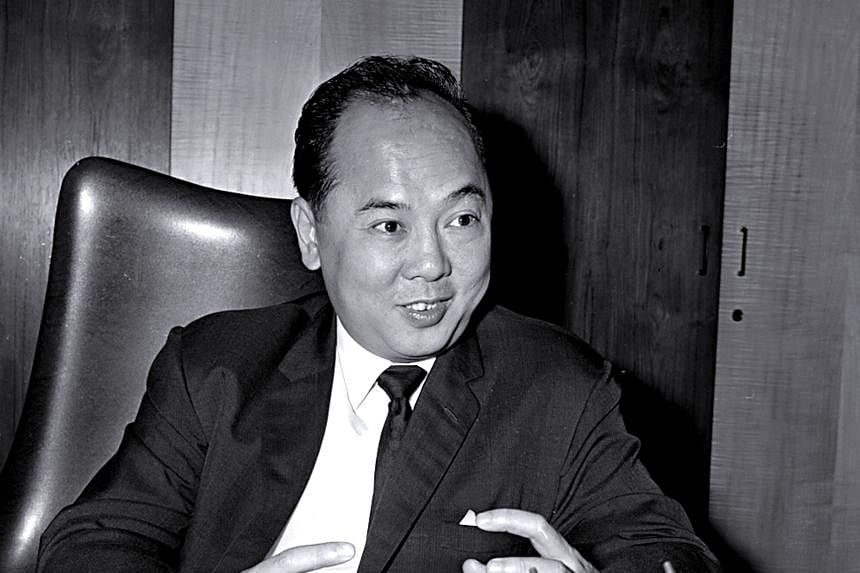SINGAPORE – A successful banker, revered community leader and respected mentor – this is how family, colleagues and friends of Mr Wee Cho Yaw fondly remember him and his legacy after he died at the age of 95 on Feb 3.
Under the banking titan’s leadership for more than five decades, UOB saw its assets increase from $2.8 billion to more than $253 billion in 2013, when Mr Wee stepped down as chairman. The branch network of Singapore’s third-largest bank also expanded from 75 to more than 500 branches and offices globally over the same period.
Mr Wee Ee Cheong, UOB chief executive and Mr Wee’s son, said his father not only built a legacy as a renowned business and community leader, but was also the cornerstone of his family’s life.
“Like many of his generation, he was a man of few words and believed in tough love,” the CEO, one of Mr Wee’s five children, said at a memorial service held at the Woodlands Memorial funeral parlour and live-streamed on the evening of Feb 6.
“Importantly, his actions spoke louder than words... Though busy with work, he would always find quality time to bond with us, instilling in us values and principles to guide us through life.”
As a businessman, the late Mr Wee led UOB’s steady expansion and contributed to the consolidation of Singapore’s banking industry through various acquisitions by his bank.
In 1958, he was appointed to the board of United Chinese Bank (UCB) – the lender co-founded by his father Wee Kheng Chiang – and became its managing director two years later. UCB changed its name to United Overseas Bank, or UOB, in 1965, the same year that the bank opened its first overseas branch in Hong Kong.
A banking titan
Mr Wee succeeded his father as chairman and chief executive of UOB Group in 1974, although he had already acquired a stellar reputation before that.
In the late 1960s, he was known as Ah Sai, Hokkien for lion, said Mrs Ong-Ang Ai Boon, director of the Association of Banks in Singapore.
“The market said he was somebody they had to kind of watch and look out for, because he was very dynamic and savvy,” she said in a video shown at the memorial service.
Mr Wee saw UOB through eight acquisitions, including that of Chung Khiaw Bank, which was larger than UOB at the time. The bank gained control of Chung Khiaw in 1971 after fending off more than half a dozen rivals.
Three decades later in 2001, Mr Wee sealed his most high-profile deal. He beat rival DBS Bank to acquire Overseas Union Bank (OUB), then South-east Asia’s fourth-largest bank. Mr Wee had personally visited OUB founder George Lien Ying Chow to convince him and the Lien family to sell their stakes to his bank under the deal, which valued OUB at $10 billion.
This came even as the industry was still grappling with the aftermath of the Asian financial crisis.
UOB group chief financial officer Lee Wai Fai, who joined the bank in 1989, said Mr Wee was a decisive but cautious man.
“The regional economies were in turmoil, and the risks were high. I remember he called me to his office to start looking for potential targets as, in his words, a crisis offers opportunities,” said Mr Lee.
“However, he wanted me to isolate the risks as we could not afford to let a major acquisition affect our position in Singapore.”
Mr Wee taught him another important lesson: Be prepared to walk away from any deal if the risks are too high.
“Otherwise, we could be too emotionally attached, clouding our judgment... His ability to look into details and to find that unique angle to make UOB different was really amazing,” added Mr Lee.
Mr Wee handed over the position of chief executive to his son Wee Ee Cheong in 2007.
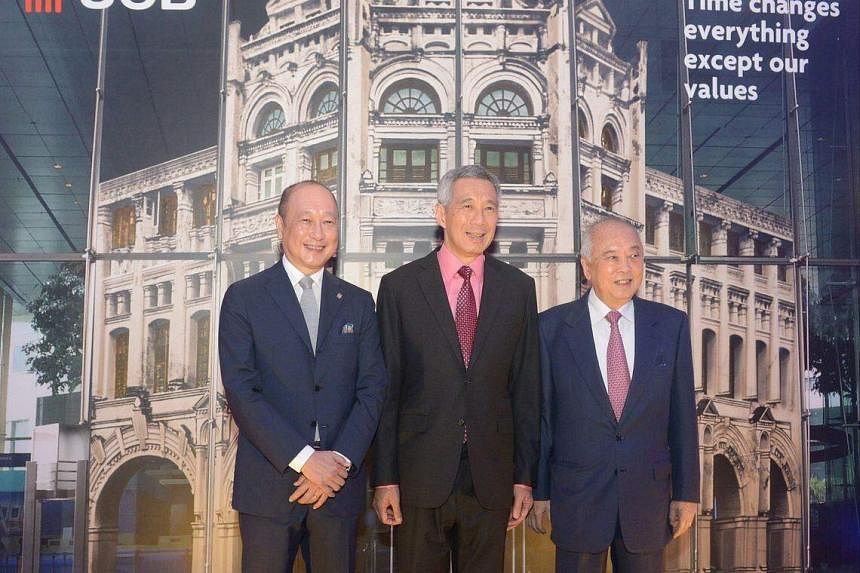
In 2013, the older Mr Wee stepped down as chairman, and became chairman emeritus and honorary adviser. He retired as a UOB board director in 2018.
In a South China Morning Post interview in 2002, Mr Wee said bidding for OUB was a decision about the ultimate survival of UOB, which he viewed as his “second life”.
He stressed UOB’s need to go overseas for growth, especially with margins squeezed by liberalisation at home and the entry of foreign banks, and the bank has done that over the years.
Greater China, Malaysia, Thailand, Indonesia and other markets made up 51 per cent of the bank’s loan book as at September 2023, while Singapore accounted for the remainder.
UOB announced in January 2022 that it would acquire Citigroup’s consumer banking franchise in Indonesia, Malaysia, Thailand and Vietnam for nearly $5 billion – a move that would help it double its South-east Asian customer base outside Singapore.
The lender has also transformed itself digitally. In 2021, it committed up to $500 million over five years to scale up its digital offerings in Singapore and the rest of Asean.
It said in May 2023 that it onboards about 800,000 customers a year in Indonesia, Malaysia, Thailand and Vietnam – more than 50 per cent of whom sign up via the UOB TMRW banking app.
UOB’s latest earnings reported in October 2023 showed that its net interest income continued to be buoyed by high interest rates, while net fee income was powered by higher credit card fees, as well as wealth management and loan-related fees.
The bank’s third quarter of 2023 results showed that core net profit rose 5 per cent year on year to $1.48 billion. However, including one-off expenses from UOB’s integration of Citigroup’s consumer businesses, net profit for the quarter fell 1 per cent to $1.38 billion.
It will post its earnings for the fourth quarter and the whole of 2023 on Feb 22.
The lender, which has a market capitalisation of $47 billion, joins its peers in grappling with the double-edged sword of high interest rates, which have boosted margins but reduced demand for loans. It also faces uncertainty over when the US Federal Reserve will cut rates, and risks from China’s shaky economic recovery.
Singapore Management University’s Associate Professor of Strategy and Entrepreneurship Kenneth Goh said UOB’s milestones under Mr Wee Ee Cheong’s leadership reflect the chief executive’s entrepreneurial instincts.
“UOB’s smooth transition from Mr Wee Cho Yaw to Mr Wee Ee Cheong is a testament to the bank’s forward-thinking approach to succession planning,” said Dr Goh, who is academic director of SMU’s Business Families Institute.
“Looking beyond Mr Wee Ee Cheong’s leadership, I think the question is how his successor will continue to perpetuate the values and culture that have helped the bank stand the test of time, as it continues to expand.”
A community leader and mentor
Mr Wee Cho Yaw also wanted to give back to society. In particular, he cared a lot about the preservation of Chinese culture, said Minister for Communications and Information Josephine Teo in the video shown at his memorial service.
“He wanted the next generation to always have this connectedness to their own roots and to their own traditions,” she said. “I think his own personal commitment inspired a whole generation of other Chinese community leaders to also step forward, not just to give of their wealth and resources, but also to give of their time.”
Indeed, this was what businessman Chua Seng Chong admired in Mr Wee.
“Besides being a successful businessman, he found time to give back to the Chinese community and society at large, especially in the area of education. He has my full respect for that,” said the 80-year-old, who is a member of the Singapore Hokkien Huay Kuan’s (SHHK) board of governors that was chaired by Mr Wee until his death, and an honorary council member.
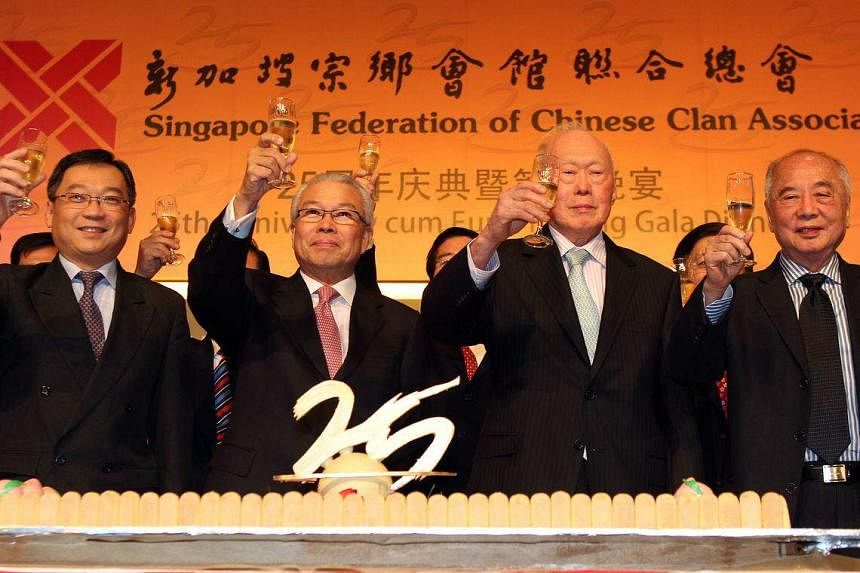
Mr Wee served SHHK for 52 years from 1972 to 2024, and was its longest-serving president, from 1972 to 2010. During this period, he led SHHK to modernise and commit to the promotion of culture, education and social welfare. Efforts in these areas included the reconstruction of its building, large-scale refurbishment of Thian Hock Keng temple, and the relocation and expansion of some schools under the clan.
Mr Chua worked with Mr Wee for over 30 years in SHHK and at the Chung Cheng High School management committee, where Mr Wee was the chairman.
“At meetings, Mr Wee was always punctual, decisive and focused,” he told The Straits Times. “Once we had agreed on what had to be done, he would let go and trust us to run with it.
“After Tan Kah Kee, Lee Kong Chian and Tan Lark Sye, Mr Wee was another successful businessman who had set a good example of contributing to society. I hope he would inspire more like him to do likewise,” said Mr Chua, who added that while Mr Wee could be serious at meetings, he was like a friend.
From 1985 to 2010, Mr Wee was the founding president of the Singapore Federation of Chinese Clan Associations (SFCCA), the umbrella group for local Chinese clan associations here. Under his leadership, SFCCA’s membership soared from 74 clan associations to 198.
In 1995, Mr Wee established the Chinese Heritage Centre at the site of the former Nanyang University. This institution served as a repository for materials related to the Chinese community in Singapore, supporting research on overseas Chinese while building the local Chinese identity.
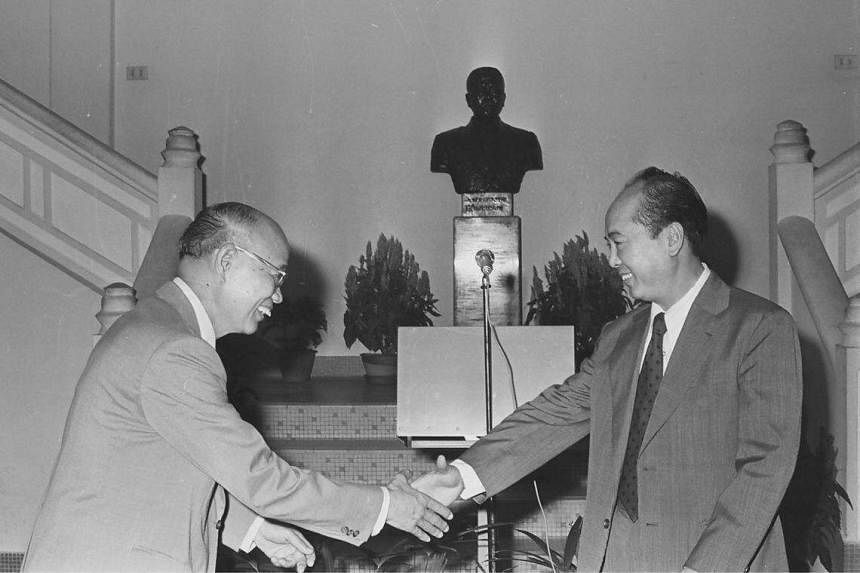
In 2004, he proposed the establishment of a Chinese language and culture fund under SFCCA to advance the development of Chinese language and culture.
Mr Wee also led SFCCA to initiate the first River Hongbao in 1987 to celebrate Chinese New Year. After 37 editions, it has become an iconic cultural event in Singapore.
Mr Perng Peck Seng, who is River Hongbao’s programme chairman, said: “We have lost a good mentor. He was the driving force behind the event over the years and inspired us to keep going and innovating.”
He added: “We must remember that he ignited the first spark, and his spirit will inspire those behind and beside him to continue transmitting Chinese culture through the event.”
Mr Perng, who is in his 70s, is also an honorary council member of SHHK and executive director of its cultural academy. He worked with Mr Wee for 40 years at SHHK, and remembers him as a charitable and gentle man.
“He kept a low profile and did not promote his contributions,” he said.
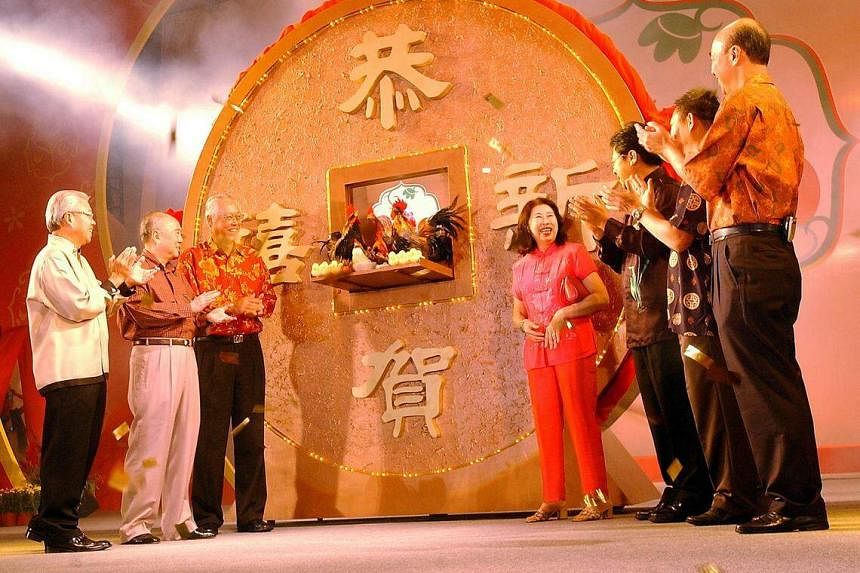
In the early 1980s, Mr Perng proposed to Mr Wee, then SHHK’s president, to set up the SHHK Arts and Cultural Troupe for children aged 18 months to 16 years old. This was to promote Chinese language and culture among the younger generation through fun activities like creative writing, calligraphy, speech and drama. “Mr Wee asked detailed questions, listened intently, and wanted to know if we were confident of making it a success. Then he nodded and told us to go ahead,” Mr Perng said.
The troupe, which performs locally and overseas, grew from 99 children in 1986 to over 2,000 today. Its success laid the foundation for the establishment of the SHHK cultural academy in 2012, which offers bilingual pre-school education, after-school care, and language and cultural classes for all age groups.
Mr Wee also helmed the Kim Mui Hoey Kuan, for those from Kinmen county, for 48 years from 1964 as its longest-serving president. Besides leading the clan association in supporting education through donations to educational causes, he organised exhibitions and set up a library in the clan to promote arts and culture. He also contributed to the clan’s development with yearly financial contributions and generous support for its relocations and renovations.
Mr Png Yiow Beng, president of Kim Mui Hoey Kuan, said he learnt five values from Mr Wee: commitment, in his long and wide-spanning service to society; benevolence, in his generous contributions to the less fortunate; trust, in how he focused on the strategic issues and let others run the day-to-day operations; far-sightedness, in his business acumen; and fairness, in his administration of the various clan associations.
Singapore Chinese Chamber of Commerce & Industry (SCCCI) president Kho Choon Keng said Mr Wee, who served as SCCCI president for three terms from 1969 to 1979, was a role model for the business community.
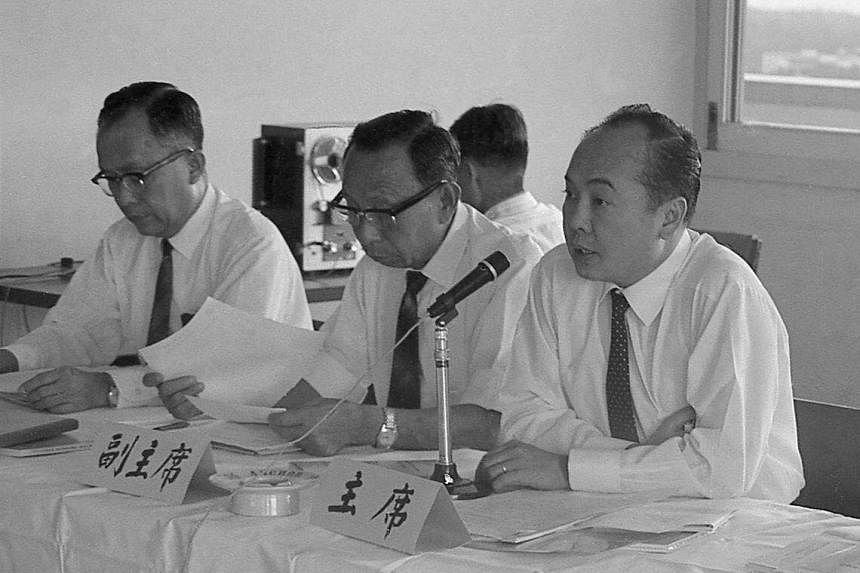
In 1992, SFCCA, in collaboration with SCCCI, co-founded the Chinese Development Assistance Council (CDAC) to strengthen the development of the local Chinese community, extend aid to the less privileged, and support social mobility for low-income families.
Mr Wee was the founding chairman of the CDAC board of trustees and led its fund-raising committee to raise more than $10 million during his term.
During his tenure, CDAC introduced assistance schemes such as the CDAC-SFCCA Hardship Assistance Fund and the CDAC-SFCCA bursary scheme.
“Mr Wee’s legacy in rallying the Chinese community to promote social mobility is an inspiration for our young,” said CDAC executive director Tan Yap Kin.
“CDAC will build on the strong foundation laid down by Mr Wee”, he added, and continue to support social mobility through education and strengthening the family.
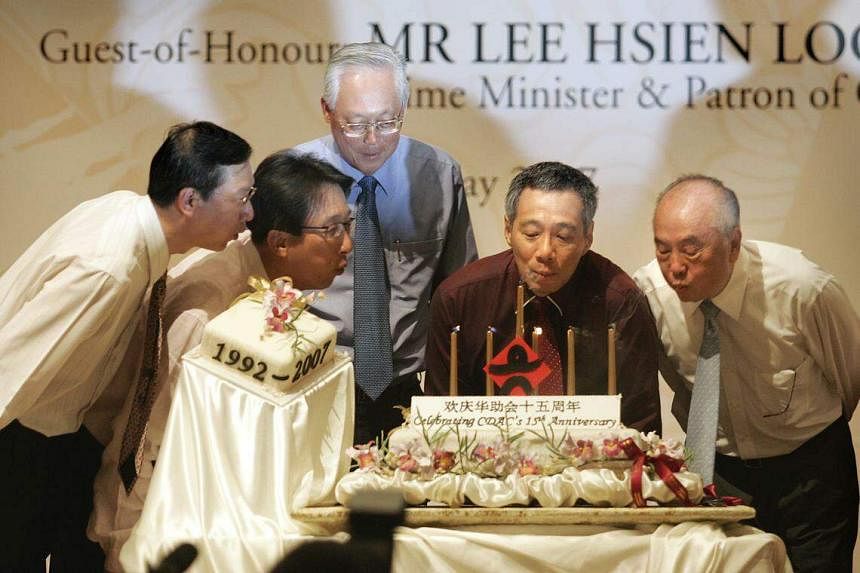
Property magnate Chua Thian Poh said the Singaporean Chinese community has lost a visionary leader who served society with great dedication and made immense contributions. He worked hand in hand with Mr Wee for over 20 years while serving at SHHK, SFCCA and CDAC.
“He was a mentor who allowed growing space for his juniors to take on greater roles,” he said. “Under his leadership, the various Chinese associations in Singapore flourished, especially in supporting the education needs of students and families in need.”
Professor Tan Eng Chye, president of the National University of Singapore (NUS), said Mr Wee was a firm believer in education as a social leveller and enabler for social and economic progress.
Mr Wee played a key role in the merger of Nanyang University and the University of Singapore to form NUS, where he served on the NUS Council for two decades from 1980 to 2000.
Together with his family and UOB, Mr Wee also supported various NUS programmes, including the Wee Cho Yaw Future Leaders Award for high-potential students with financial needs, and the Wee Cho Yaw Singapore-China Finance and Banking Forum, which promotes a deeper understanding of banking, economics and finance, and provides scholarships to deserving students.
NUS conferred on him an Honorary Doctor of Letters in 2008.
Mr Wee also became the pro-chancellor of Nanyang Technological University (NTU) in 2004.
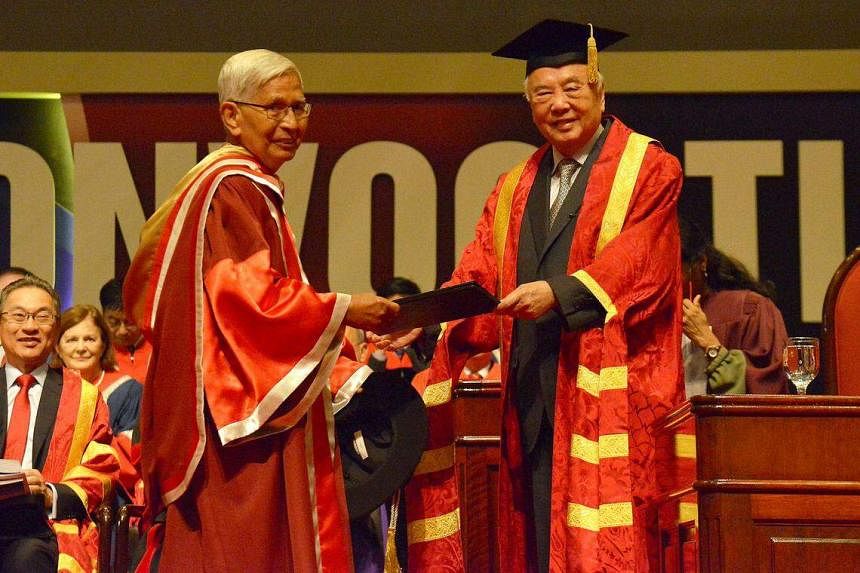
NTU president Ho Teck Hua said Mr Wee, together with Wee Foundation and UOB, gave $16 million to NTU over the years, in support of education and research advancement, in financial assistance to students from disadvantaged backgrounds, as well as for grooming future leaders.
For his contributions to NTU and the community, he was conferred an Honorary Doctor of Letters by NTU in 2014.
UOB chairman Wong Kan Seng said in the memorial’s video that Mr Wee’s contributions go beyond business to the wider sections of the community.
“So it’s really a passing of a generation. Singapore has lost one of its pillars in the financial industry and also in the community, and I’m indeed very saddened by it.”
